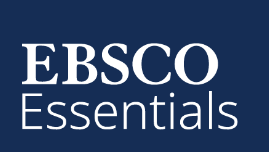The Development of Learning Activities Based on Reflective Thinking and Peer Scaffolding for Undergraduate Students in a Course of Study “Learning Development for Elementary Students”, Roi - Et Rajabhat University
Keywords:
Reflective Thinking, Peer Scaffolding, Learning Activities, Action ResearchAbstract
This research aims to: 1) develop learning activities based on reflective thinking and peer scaffolding for undergraduate students in the "Learning Development for Elementary Students" course, and 2) study the results of implementing these learning activities. The target group consisted of 28 undergraduate students in the Faculty of Education at Roi-Et Rajabhat University. The research tools included the developed learning activities, a learning log, and a satisfaction questionnaire. Data were analyzed using mean, standard deviation, and content analysis. The findings were as follows: 1) The developed learning activities consisted of 7 components and a 4-step process: introduction to the lesson, knowledge construction, peer scaffolding, and a summary with reflective thinking. The overall appropriateness of the activities was evaluated at a high level by experts. 2) The content analysis of learning logs revealed that the activities developed students' reflective thinking skills, including the organization of ideas, analysis, and consideration of problem-solving approaches. The peer scaffolding process involved skills such as discussion, offering suggestions, and providing encouragement. The results also showed that students gained an understanding of child nature and could design activities to promote or solve developmental problems for elementary-level children. Furthermore, the undergraduate students reported the highest level of satisfaction with the learning activities.
References
Academic Affairs, Roi-et Rajabhat University. (2021). Student statistics. https://www.acedemic.reru.ac.th/
Bell, K. (2021). Increasing undergraduate student satisfaction in higher education: The importance of relational pedagogy. Journal of Further and Higher Education, 46(4), 490–503. https://doi.org/10.1080/0309877X.2021.1985980
Berk, L. E., & Winsler, A. (1995). Scaffolding children’s learning: Vygotsky and early childhood education (NAEYC Research into Practice Series, Vol. 7). National Association for the Education of Young Children.
Cheuaiam, S., Triudomsri, S., & Chaiyawut, P. (2019). Effects of practical teaching with reflection on clinical skilled nursing and satisfaction in nursing for principles and techniques in nursing. Udonthani Hospital Medical Journal, 27(2), 150–157.
Chun, J., & Cennamo, K. (2022). A theoretical model of peer learning incorporating scaffolding strategies. International Journal of Teaching and Learning in Higher Education, 33(3), 385–397.
Driver, R. (2012). Constructivist approaches to science teaching. In L. P. Steffe & J. Gale (Eds.), Constructivism in education (pp. 403–418). Routledge.
Duangsri, P., & Tananitikunroj, T. (2019). Developing the skill of reflective practice for EFL teaching through cognitive coaching: A case study of the pre-service teachers of English education program, Loei Rajabhat University. Journal of Education, Prince of Songkla University, Pattani Campus, 30(2), 97–111.
Gibbs, G. (1988). Learning by doing: A guide to teaching and learning methods. Oxford Brookes University.
Herli, S., Susilawati, S., & Muhammad, H. (2021). Reflective writing in the pandemic period: A university students’ reflection. Journal of Educational Technology & Online Learning, 4(1), 56–65.
Kanthong, S. (2021). Development of learning management for enhancing reflective thinking of student teachers in peace educational for teachers course, Princess of Naradhiwas University. Princess of Naradhiwas University Journal of Humanities and Social Sciences, 8(2), 180–197.
Kemmis, S., & McTaggart, R. (1990). The action research planner. Deakin University Press.
Nuangchalerm, P. (2018). Action research on teaching. Klungnanavitthayapress.
Office of the Higher Education Commission. (2009). Thai qualifications framework for higher education (TQF:HEd). https://qa.srru.ac.th/tqf2552
Phumkaew, P. (2019). Development of a model of organizing for learning for enhancement of reflective thinking ability of student teacher. Journal of Education Measurement Mahasarakham University, 25(1), 188–205.
Quaye, S. J., & Harper, S. R. (2015). Student engagement in higher education: Theoretical perspectives and practical approaches for diverse populations (2nd ed.). Routledge.
Raymond, E. (2000). Cognitive characteristics. In Learners with mild disabilities. Allyn & Bacon.
Rianrila, P. (2020). Research studies on reflective thinking. Journal of Education Loei Rajabhat University, 14(2), 1–13.
Roi-et Rajabhat University. (2021). Mission of Roi-et Rajabhat University. https://www.reru.ac.th/
Martínez Roget, F., Freire Esparís, P., & Vázquez Rozas, E. (2020). University student satisfaction and skill acquisition: Evidence from the undergraduate dissertation. Education Sciences, 10(2), Article 29. https://doi.org/10.3390/educsci10020029
Rotchu, P. (2020). The development of English reading comprehension ability based on local context reading materials with scaffolding technique of undergraduate students. Journal of MCU Nakhondhat, 7(10), 154–156.
Thammajak, O. (2022). The development of creative thinking by using reflective approach on the design and development of Thai teaching innovation of student teachers, Thai Language program, faculty of education Chaiyaphum Rajabhat University. Journal of Saengkhomkham Buddhist Studies, 7(2), 279–299.
Van der Stuyf, R. R. (2002). Scaffolding as a teacher strategy. Adolescent and Development, 52(3), 5–18.
Vygotsky, L. S. (1978). Mind in society: The development of higher psychological processes. Harvard University Press.
Waiyakoon, S., Khlasing, J., & Koraneekij, P. (2015). Development of an instructional learning object design model for tablet using game-based learning with scaffolding to enhance mathematical concepts for mathematic learning disability students. Procedia-Social and Behavioral Sciences, 174, 1489–1496.
Wechayaluck, N. (2019). Classroom management (2nd ed.). Cupress.
Wichainate, K. (2014). Reflective thinking: Teaching students to develop critical thinking in nursing practice. Journal of the Police Nurse, 6(2), 188–199.
Wintachai, J. (2018). Using peer scaffolding to improve student learning in a psychoeducational assessment subject. Journal of Educational Studies Chulalongkorn University, 46(3), 29–44.
Downloads
Published
Issue
Section
License
Copyright (c) 2025 Journal of Organizational Innovation & Culture

This work is licensed under a Creative Commons Attribution-NoDerivatives 4.0 International License.





